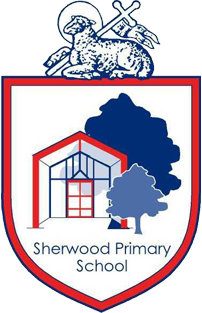English
The English Curriculum at Sherwood Primary School underpins each and every subject, supporting our children's abilities to become knowledgable through reading widely, seeing themselves as 'real writers' and communicating confidently. We aim to inspire and challenge our children to speak and write fluently, enabling them to effectively communicate their ideas and emotions to others.
Reading
We hope our pupils will foster a life-long love of reading, providing them with the opportunity to explore new ideas, visit new places and meet new characters. Through reading, pupils have the chance to develop culturally, emotionally, intellectually, socially and spiritually. The children are encouraged to read widely, exploring both fiction and non-fiction texts, which introduces them to new and exciting vocabulary. Please click here to read our Reading Strategy. This document provides an overview of how we teach Reading at Sherwood with fluency, understanding and a love for reading at the heart of our work.
Please visit our Phonics and Early Reading page for further information on strategies used to develop our children as confident and independent readers.
Writing
At Sherwood, writing is taught through transcription (spelling and handwriting) and composition (articulating ideas and structuring them in speech and writing). In Key Stage 1, children are taught spelling through learning to segment in phonics sessions. From Year 2, the children learn and are encouraged to explore spelling rules. This continues through Key Stage 2, leading to their development as independent and accurate spellers, who are confident with adventurous vocabulary.
The children are provided with varying stimulus such as drama and reading, to support their ideas for writing. Each year group have mapped out writing opportunities which culminate in scaffolded and independent writing, rich with vocabulary and varying grammatical skills.
Speaking and Listening
At Sherwood, spoken language pemeates the entire curriculum and underpins the development of reading and writing. Children are encouraged, through drama sessions, to adopt roles and further develop a character's thoughts and feelings, which enhances the children's writing abilities. Through developing their communication skills, the children are preparing themselves for future life.








